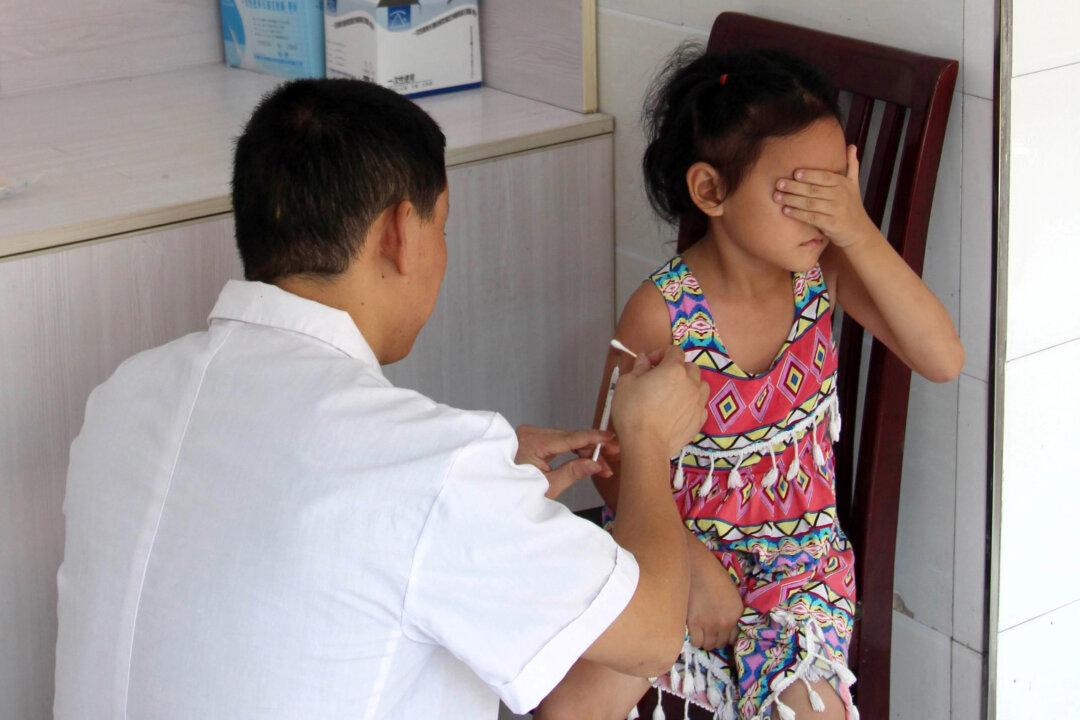A health service center in northern China was recently found to have deliberately used single-target vaccines to replace a pentavalent vaccine meant to protect children from five diseases at once, in a scheme to make profits.
The incident is the latest in a string of vaccine scandals that have outraged parents nationwide.





